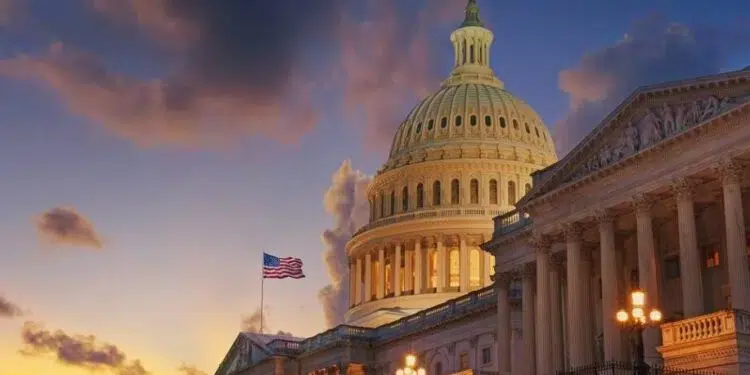The United States Senate approved the National Innovation Orientation and Establishment Law for Stablecoins, known as Genius. With 68 votes in favor and 30 against, this bipartisan initiative now advances to the House of Representatives, where it will be evaluated and, to gain green light, sent to President Donald Trump for his signature.
The project establishes a strict regulatory framework for stablecoins that maintain parity with the dollar. This with the objective of strengthening the position of the United States as a global leader in digital innovation and ensuring the stability of the international economic system.
Now, what is this project that is considered historical for the cryptocurrency industry? Next, we present the key points of this initiative, which seeks to safeguard users and modernize the finances of the United States.
According to the law, Only Stablecoins can issue the insured deposit institutions or their subsidiaries, federal license issues and state license issues. To qualify, these entities must demonstrate their ability to meet the reserve requirements and the absence of serious criminal record.
Issuers must implement Clear procedures that allow users to convert their stablcoins into cash quickly and timely. Besides, They will be obliged to publish monthly audiences about their reservations and to submit to independent audits annually.
The law also prohibits promoting stable currencies as deposits insured by the FDD (Federal Deposit Insurance Corporation).
Regarding the relationship between regulations, the federal regulations will prevail over the state, so that the federal license issues will be exempt from complying with the state requirements for money transmitting licenses (MTL). These are necessary permits to legally operate in the transfer of funds within a State.
However, states may grant licenses to issuers that comply with substantially similar standards to the federals, provided they have less than 10 billion dollars in circulation. Currently, only Tether (USDT) and USD Coin (USDC) exceed this thresholdwhich makes them the only stablecoins subject to federal regulations.
On the other hand, the reserves and the private keys linked to the stablcoins must be guarded by banks insured by the FDIC (Federal Corporation of Deposit Insurance), the NCUA (National Administration of Credit Cooperatives), Fiduciary Banking Entities authorized by the OCC (Office of the Comptroller of the Currency) or other supervised custodians at the federal level.
Likewise, emitters and custodians must have mechanisms to freeze tokens when there is a valid legal order. AND The Treasury Department will have the authority to block foreign stablcoins that do not comply with the regulation of the United States.
Finally, The unauthorized issuance of Stablecoins can carry daily fines of up to one million dollars and prison sentences of up to five yearsin order to protect both consumers and creditors against possible fraud or risks.
As Cryptoics reported, this regulation represents a historical advance for the integration of stablcoins into the US financial system. If approved by the House of Representatives and signed by the President, the Genius Law would finally enter into force.
In the event that the camera does not approve it, the text will have to be reviewed and possibly modified, which would delay its implementation. However, there are expectations that progress, given the bipartisan support he has achieved.


